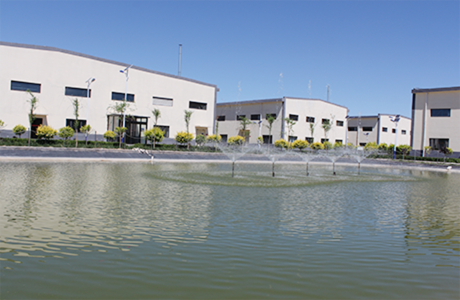- Afrikaans
- Albanian
- Amharic
- Arabic
- Armenian
- Azerbaijani
- Basque
- Belarusian
- Bengali
- Bosnian
- Bulgarian
- Catalan
- Cebuano
- Corsican
- Croatian
- Czech
- Danish
- Dutch
- English
- Esperanto
- Estonian
- Finnish
- French
- Frisian
- Galician
- Georgian
- German
- Greek
- Gujarati
- Haitian Creole
- hausa
- hawaiian
- Hebrew
- Hindi
- Miao
- Hungarian
- Icelandic
- igbo
- Indonesian
- irish
- Italian
- Japanese
- Javanese
- Kannada
- kazakh
- Khmer
- Rwandese
- Korean
- Kurdish
- Kyrgyz
- Lao
- Latin
- Latvian
- Lithuanian
- Luxembourgish
- Macedonian
- Malgashi
- Malay
- Malayalam
- Maltese
- Maori
- Marathi
- Mongolian
- Myanmar
- Nepali
- Norwegian
- Norwegian
- Occitan
- Pashto
- Persian
- Polish
- Portuguese
- Punjabi
- Romanian
- Russian
- Samoan
- Scottish Gaelic
- Serbian
- Sesotho
- Shona
- Sindhi
- Sinhala
- Slovak
- Slovenian
- Somali
- Spanish
- Sundanese
- Swahili
- Swedish
- Tagalog
- Tajik
- Tamil
- Tatar
- Telugu
- Thai
- Turkish
- Turkmen
- Ukrainian
- Urdu
- Uighur
- Uzbek
- Vietnamese
- Welsh
- Bantu
- Yiddish
- Yoruba
- Zulu
វិច្ឆិកា . 11, 2024 01:51 Back to list
Tylan Injection Use and Benefits in Livestock Health Management
The Tylan Injection A Comprehensive Overview
In the realm of veterinary medicine, Tylan injection is a prominent treatment option, particularly in livestock management. Tylan, the brand name for Tylosin, is a macrolide antibiotic that is widely used to promote growth and treat bacterial infections in animals. This article aims to provide an in-depth understanding of Tylan injection, its uses, benefits, dosage, and potential side effects.
What is Tylosin?
Tylosin is an antibiotic that belongs to the macrolide class. Originally discovered in the 1950s, it was primarily used to combat infections caused by specific types of bacteria, particularly in poultry, swine, and cattle. Tylosin is effective against Gram-positive bacteria and some Gram-negative bacteria, making it a versatile option in both therapeutic and preventative care in veterinary practices.
Uses of Tylan Injection
Tylan injection is primarily utilized for the treatment of various bacterial infections in livestock. These include respiratory infections, enteritis, and other conditions caused by susceptible bacteria. One of the key advantages of Tylosin is its ability to enhance feed efficiency, which is why it’s frequently administered to animals to promote growth and improve weight gain.
In addition to promoting growth, Tylan injection is also used to prevent diseases. For example, in swine production, it's often applied in the prevention of swine dysentery and other related conditions. Similarly, in poultry, it can be administered to reduce the incidence of necrotic enteritis and other enteric diseases.
Dosage and Administration
The administration of Tylan injection should be carried out under veterinary supervision. Dosages can vary depending on the species, age, and weight of the animal, as well as the condition being treated. In general, Tylan is administered via intramuscular or subcutaneous injection.
tylan injection

The usual dosage for swine is around 10-20 mg/kg of body weight, while for cattle, it may range from 10 to 15 mg/kg, given once a day for several days depending on the severity of the infection or condition being treated. It's crucial to adhere to the recommended dosage and duration of treatment to avoid resistance and ensure the effectiveness of the medication.
Benefits of Tylan Injection
One of the significant benefits of Tylan injection is its dual functionality as both a therapeutic agent and a growth promoter. The ability to improve feed efficiency can result in more economical livestock production, allowing farmers to achieve better profits and reduce the use of antibiotics.
Additionally, Tylan's effectiveness against bacterial infections helps safeguard the health of livestock, which is fundamental for sustainable animal production. Healthy animals contribute to food security, ensuring that there is a steady supply of meat, dairy, and eggs for the growing global population.
Potential Side Effects
While Tylan is generally safe when administered correctly, there can be potential side effects. Some animals may experience mild reactions at the injection site, such as swelling or pain. In rare cases, allergic reactions may occur, necessitating discontinuation of the treatment. Moreover, the overuse of antibiotics like Tylosin can lead to antibiotic resistance, a growing concern in both human and veterinary medicine.
To mitigate these risks, it is essential to use Tylan injection judiciously and follow prescribed guidelines. Regular health check-ups and veterinary consultations can further help in monitoring the animal’s wellbeing during and after treatment.
Conclusion
Tylan injection has proven to be an invaluable tool in veterinary medicine, particularly in the livestock industry. Its applications range from treating bacterial infections to promoting growth, making it a critical component of animal health management. However, responsible use is necessary to prevent potential adverse effects, including antibiotic resistance. By prioritizing animal welfare and adhering to veterinary guidance, farmers and animal caretakers can effectively harness the benefits of Tylan injection, contributing to a healthier and more productive livestock industry.
-
Guide to Oxytetracycline Injection
NewsMar.27,2025
-
Guide to Colistin Sulphate
NewsMar.27,2025
-
Gentamicin Sulfate: Uses, Price, And Key Information
NewsMar.27,2025
-
Enrofloxacin Injection: Uses, Price, And Supplier Information
NewsMar.27,2025
-
Dexamethasone Sodium Phosphate Injection: Uses, Price, And Key Information
NewsMar.27,2025
-
Albendazole Tablet: Uses, Dosage, Cost, And Key Information
NewsMar.27,2025













